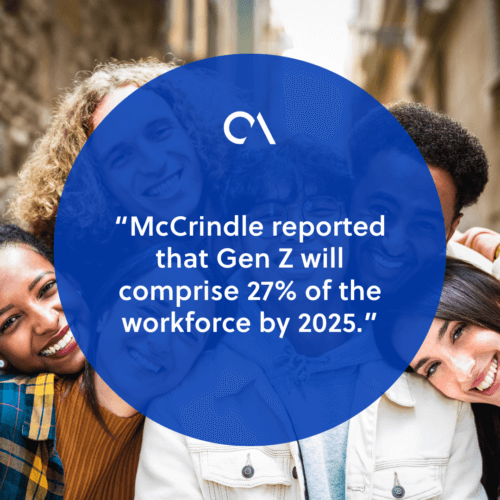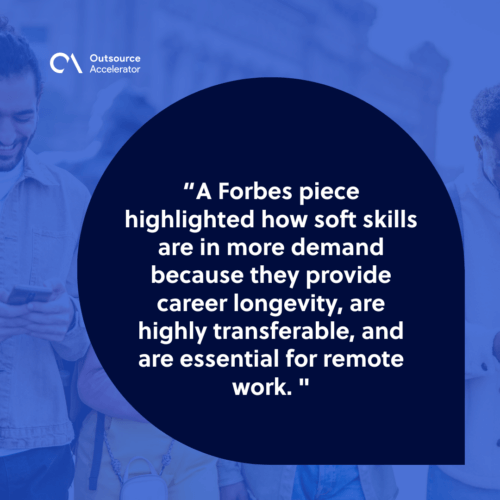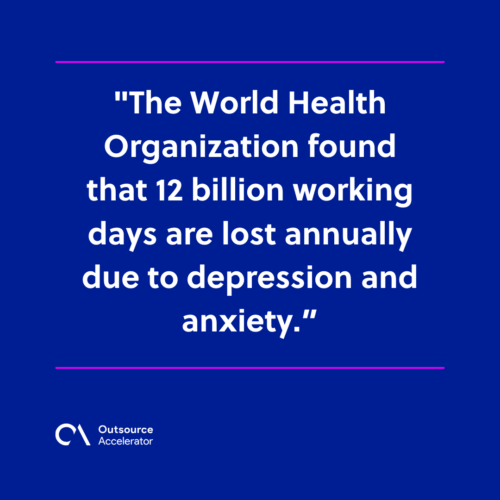20 hiring trends to look out for in 2025

Staying on top of the latest hiring trends is essential for businesses to attract top talent and remain competitive.
With the job market constantly evolving, it’s crucial to adapt to changes in recruitment and make informed decisions.
In fact, the International Labour Organization listed the recent pandemic’s many detrimental effects on the labor market, which are expected to persist in the coming years.
The ILO added new challenges like sharp rises in inflation, supply chain disruptions, and ongoing wars will also have damaging effects on the world of work.
So, keeping abreast of recruitment and hiring trends could help enterprises survive and thrive amidst global uncertainty.
In this article, we’ll break down 20 hiring trends expected to impact the recruitment landscape in 2024 and beyond.
Why be aware of hiring trends?
Aside from being able to pull through global uncertainties, keeping up with hiring trends is crucial for businesses to stay competitive and attract top talent.
With the unpredictability of today’s job market, it’s essential to adapt to the changing recruitment landscape and make informed decisions.
Staying aware of emerging trends allows companies to:
- Gain a competitive edge
- Improve their hiring processes
- Secure the best candidates for their organizations
- Proactively address challenges
- Leverage new technologies
- Create a positive candidate experience
Moreover, being updated with hiring trends leads to the success and growth of the organization.
20 hiring trends to implement in 2025
We cannot fully predict the future, but these 20 hiring trends are already making waves in the recruitment industry:
1. Gen Z further integrating into the workforce
McCrindle reported that Gen Z will comprise 27% of the workforce by 2025. As the first fully digital generation integrates further into the job market, organizations need to tailor their recruitment strategies to attract these emerging talents.
Gen Z candidates value career growth, work-life balance, and meaningful work. Employers should emphasize flexibility, technological integration, and opportunities for professional development when engaging with this cohort.

2. Social media recruiting
Social media platforms will continue to play a vital role in talent acquisition. Companies will increasingly leverage social media platforms like LinkedIn and X for sourcing and screening candidates.
Organizations can attract passive candidates and build a strong online presence by promoting their employer brand through engaging and authentic content.
3. Prioritization of data-centric recruitment
In the age of big data, smart businesses are leveraging analytics to make informed hiring decisions. Companies will widely use analytics tools to:
- Identify trends
- Measure the effectiveness of recruitment strategies
- Make data-informed hiring decisions
By analyzing recruitment data, organizations can streamline processes, reduce time-to-hire, and improve candidate quality.
4. Hiring will be affected by economic uncertainties
Economic uncertainties and market changes can greatly influence hiring decisions.
Companies must be agile and adapt their recruitment strategies based on economic factors such as recessions, technological advancements, and geopolitical events. This means flexibility in workforce planning and talent acquisition will be crucial.
5. Rise of AI and HR automation
One of the most prevalent hiring trends experts agree on is that AI and automation will continue transforming talent acquisition.
AI-powered recruitment tools can streamline resume screening, candidate assessments, and interview processes.
Automated tools can handle initial candidate interactions, answer questions, and schedule interviews. This can help with improving efficiency and reducing time-to-hire.
6. More diverse and inclusive work environments
Diversity, equity, and inclusion (DEI) will remain a key focus for organizations. Companies will proactively enhance their efforts to create diverse and inclusive work environments.
This will include implementing unbiased hiring practices, promoting gender and ethnic diversity, and ensuring equal opportunities for all candidates.
7. Candidate matching
With the increasing volume of job seekers and postings, businesses will invest in technology to match candidates to suitable roles more efficiently.
Applicant tracking systems (ATS) and AI-driven tools can help identify the best-matched candidates based on qualifications, skills, and cultural fit.
8. Focus on candidate experience
A positive candidate experience will be paramount in attracting top talent. Employers will invest in providing a seamless and personalized candidate journey — from the application stage to onboarding.
Timely communication, transparent processes, and respectful treatment of candidates throughout the hiring process will be critical differentiators in attracting top candidates.
9. Increase in internal recruitment through upskilling
Hiring trends make us see that nurturing internal talent not only boosts employee morale but also saves recruitment costs. So, more organizations will invest in upskilling and reskilling their existing workforce.
Instead of always hiring externally, companies will focus on developing their employees’ skills and promoting from within. This approach fosters employee loyalty and ensures a seamless transition within the organization.
10. Prominence of soft skill hiring
While technical skills remain important, soft skills will also be a significant consideration in hiring decisions.
A Forbes piece highlighted how soft skills are in more demand because they provide career longevity, are highly transferable, and are essential for remote work.
That’s why more employers seek candidates with strong communication, interpersonal, adaptability, and problem-solving skills. Organizations recognize these traits are crucial for collaboration, innovation, and building resilient teams.

11. Candidates want better pay
Competitive salaries are perennially attractive, but they will be a non-negotiable factor for top talent in the coming years.
Organizations that align their compensation structures with industry standards will have the edge in attracting and retaining skilled professionals.
A transparent approach to salary negotiation and demonstrating the value of the total compensation package will be vital.
12. Salary transparency becomes fundamental
The era of secrecy around salary information is waning. Candidates will expect more information about salary ranges, benefits, and employee compensation structures upfront.
Companies that embrace transparency in their compensation structures will build trust with employees and stand out as ethical employers.
Additionally, salary transparency can foster diversity by ensuring fair pay for women, people of color, and other historically underpaid groups.
Tip: Get a clearer idea on offshore salaries and cost savings by using this Outsourcing Calculator.
13. Emphasis on employer branding and values
Employer branding will continue to be crucial in attracting candidates. Organizations will need to showcase their unique workplace culture, values, and commitment to employee well-being to present as employers of choice.
Job seekers increasingly want alignment between their personal values and those of the companies they consider working for.
14. Rehiring of former employees
Boomerang employees, those who return to a previous employer, will become more common. This comes as many workers experience Great Resignation regrets.
Companies will recognize the benefits of rehiring candidates who possess knowledge of the organization, have a proven track record, and can quickly reintegrate into the company culture.
Therefore, alumni networks and nurturing relationships with former staff members will be essential.
15. Remote and hybrid work as part of the norm
The pandemic has reshaped the way we work. Remote and hybrid work models will be ingrained in corporate culture and will not disappear anytime soon.
These arrangements will become more normalized, providing candidates with increased flexibility and work-life balance.
As per Zippia, companies are now more considerate of employee health and well-being. That’s why 84% say those factors play a great role when developing work plans.
More businesses will need to refine their remote work policies, invest in technological infrastructure, and adapt their hiring strategies to accommodate this shift.
16. Virtual recruiting
Another one of the hiring trends that resulted from the pandemic is how we conducted recruiting at a time when we couldn’t meet in person.
Virtual recruiting has gained significant traction and will continue to be a prominent trend in the future. Many companies already embrace video interviews, virtual job fairs, and remote onboarding processes.
Virtual recruiting offers numerous benefits, including expanded access to talent globally, cost savings, and increased flexibility in the hiring process.
17. Expansion of benefits
Beyond traditional healthcare and retirement plans, organizations will expand their benefits as they will include:
- Mental health support
- Professional development opportunities
- Wellness programs
Calls to add mental health coverage in benefits packages are particularly important. It comes as the World Health Organization found that 12 billion working days are lost annually due to depression and anxiety.
A robust benefits package will be a key differentiator for companies looking to attract and retain top talent.

18. Quiet hiring of in-demand talent
With the competition for top talent becoming fiercer, enterprises will adopt a more discreet approach to hiring in-demand professionals.
Instead of publicly broadcasting vacancies, organizations will proactively approach sought-after candidates directly and build relationships.
This targeted and discreet hiring strategy promotes employee mobility and upskilling opportunities and leverages alternative methods like alumni or gig recruitment.
19. Widespread gig work
The gig economy will continue to expand as more individuals seek flexible work arrangements and firms embrace the benefits of gig workers.
Businesses will increasingly leverage outsourcing, freelancers, contractors, and project-based workers to fill skill gaps and optimize workforce planning.
This hiring trend offers greater scalability and allows individuals to pursue diverse work opportunities.
20. The Great Resignation continues
The trend of the Great Resignation will still continue as many employees leave their jobs for various reasons. Employees may have been experiencing burnout, wanting a better work-life balance, or are desiring for career change.
Firms will need to focus on engaging and retaining their existing employees through improved work environments, enhanced benefits, and supportive management practices.
The future of hiring talent
By embracing these hiring trends, businesses can position themselves at the forefront of recruitment practices in the coming years.
Adapting to the changing dynamics of the job market, leveraging technology to streamline processes, and prioritizing candidate experience will be key in attracting and retaining top talent.
Building a diverse and inclusive work environment, investing in employee development, and staying agile in uncertain economic times will ensure organizations thrive in a competitive landscape.
Remember, the future of hiring talent is not just about finding the right people for your organization — it’s about creating an environment where they can thrive and contribute to your shared success.







 Independent
Independent




